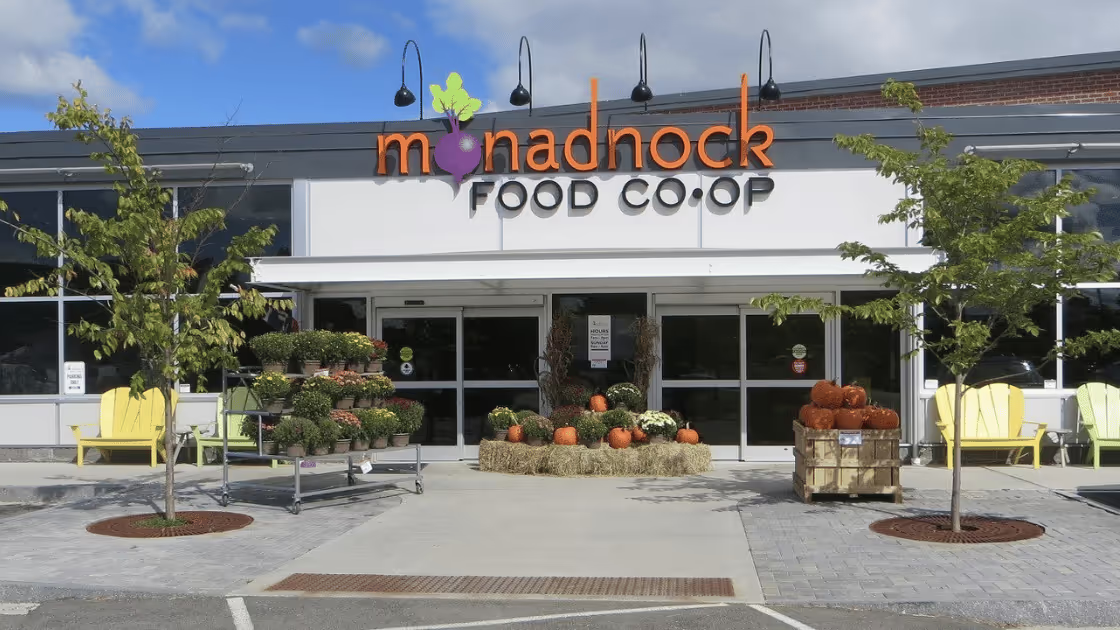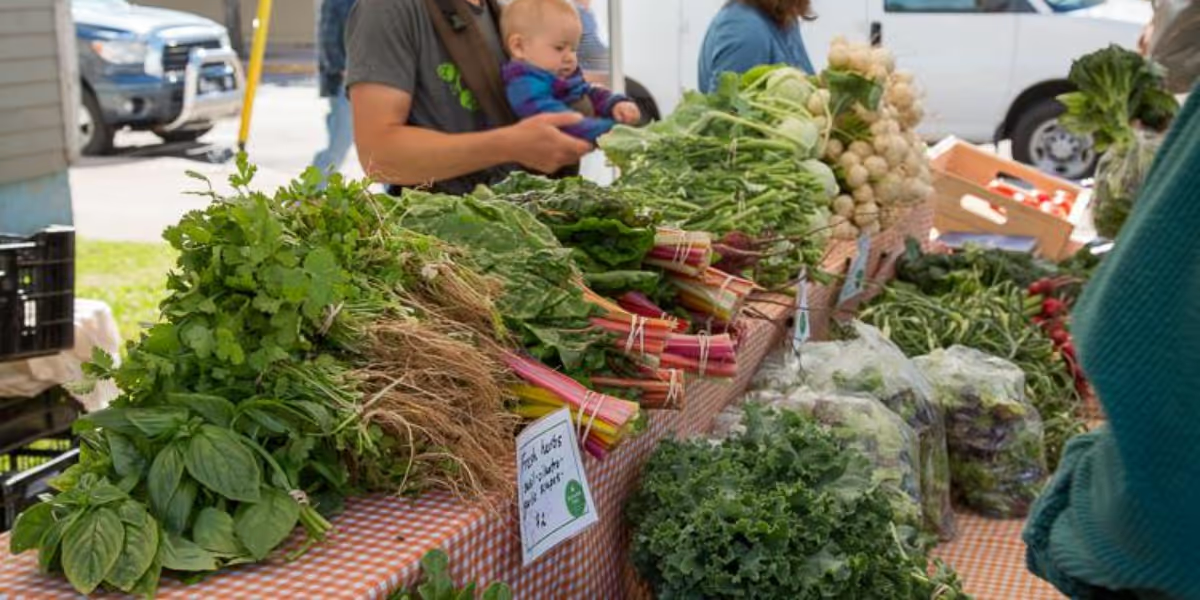Free Workshop | Farm Marketing Meets AI: Learn ChatGPT Workflows for Busy Farmers
.webp)
+1 (855) 699 1026

Brown Sugar Produce is a family-owned and operated produce farm located just outside of Brandon, Manitoba. Like many farmers, Teri from Brown Sugar Produce wanted to pivot her business away from markets and focus solely on her CSA program.
But how would they ensure the same profits?
We sat down with Teri to learn more about their business model and how she made this happen using Local Line:
Nina (Local Line): Can you tell me a bit more about Brown Sugar Produce?
Teri Jenkins (Brown Sugar Produce): My mom, Stephanie, started Brown Sugar Produce in 2001. As I teenager, I was very involved by joining her at the weekly farmers’ market. I did farmers’ markets with her for about three years. And then I moved away to go to university, met a guy, we moved to Nova Scotia, and we went farming together. We got married about three years in to that. After being married for about a year, we moved back to Manitoba and Brown Sugar Produce. Last year, my mom officially retired from Brown Sugar Produce.
Largely, all of our produce goes through our 100-member CSA. Alongside their bags, our members can purchase additional products. They do this in a big way, so much so that we don’t have to seek any additional markets this year. This allows us to spend as much time on the farm as possible – which is always the goal.
.avif)
N: How did you hear about Local Line, and why did you decide to start using us?
T: I’ve been following Local Line for a while. I first came across Local Line at a farming conference. A few years later, a close friend started using Local Line and recommended I try it out. I am not an early adopter of any tech, so when she recommended it and said even I would enjoy using it, I gave it a try.
N: How do you use Local Line in your CSA?
T: For our CSA, we use a standard bag model. I post the bag's contents about five days before pick-up day via email. If members want to order more alongside their standard bag, they can visit the private CSA price list and order additional products. They get price discounts and can put in order up to 6:00 AM on the day of their pickup for additional items. We also have a public price list with pick up in our local town on Wednesdays.
We're doing between $500 to 800 a week of additional orders, just from our CSA members. That’s a lot more than a lot of farmers' markets! And we know those items are already sold. If you wanted to make $300 at a farmers market, you might have to get $1,000 of stuff ready. And then, if it doesn’t sell out, what do you do with it?
We also use Local Line to log credits for missed bags. For our CSA, if members are going to miss a pickup, they can let us know in advance and get a double bag in the future. This year with Local Line, we’re offering them credits to the CSA price list. Our customers have been loving it.
Previously, I kept track myself by manually taking orders over email and using a homemade list. Now, I upload their credit into Local Line, and they can use their credit whenever suits them. It’s a no-brainer for me. If people have a credit sitting there, they’ll spend it. I actually offer them more credit now when they miss their bag because it's easier for me. I know sales will increase because when they’re using their credit in Local Line, they see shiny pictures of exciting vegetables, and they can't help themselves.
N: What’s the biggest benefit you get from Local Line?
T: I spend less time on the computer and more time with my hands in the soil because we use Local Line. I don’t want to spend time in the office, and Local Line has helped me achieve this. Through easy inventory management workflows, I can inventory my products in minutes, and I ensure that I don’t oversell. And, if I do, I can use Local Line to refund them or give them credits easily. It’s automated workflows such as these that have saved me so much time from admin.
Local Line also offers a lot of value to my CSA members. It’s easy for them to use, straightforward, and has simplified my workflows. I never had a customer interface before, and it really was lacking in my business. Now, I can’t live without it.
N: What advice would you give to other farmers who are hesitant about technology?
T: Think about what you want your life to look like. We’re really good at identifying our boundaries and what kind of lifestyle we want. This year we really achieved it. It felt like before, we were trying to keep up with the flow of our production and customers, and it didn’t feel like our lives were our own. With our young daughter, we wanted to have more flexibility. Having software really helps with that.
The hardest thing to fit in when working with kids around is focused time on the computer. Now, with Local Line, I can simply download my harvest list while I’m doing other things like drinking coffee. Just click a few buttons, and it’s out. I used to have to kick everybody out of the house, sit down with a sheet of paper, and make tallies of orders onto a master list – no interruptions. But often, I made a mistake, and that translated into the harvest day.
I think for us, it's always been identifying what we want our life to look like. And then kind of working backwards from like, how can we get that? We leaped this year, and I'm really glad we did.
Thanks so much to Teri for sitting down with us to tell us more about Brown Sugar Produce’s journey pivoting their sales model this year and learn about how Local Line played a vital role in that.


